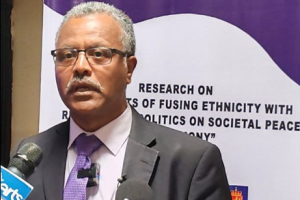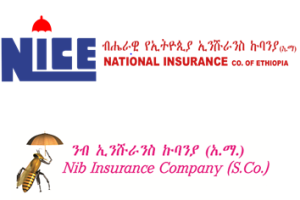
> Prepares for Platinum Jubilee celebration
ADDIS ABABA – Activities are progressing well to make Addis Ababa University (AAU) Ethiopia’s first autonomous university, in line with its upcoming Platinum Jubilee celebration, according to AAU’s Interim President Samuel Kifle (PhD).
During a press conference yesterday, Samuel stated that as the university celebrates its 75th anniversary as Ethiopia’s first university, this milestone coincides meaningfully with its transition to autonomy. The university plans to commemorate the occasion by reflecting on its history and envisioning its future.
Under the theme “Honoring the Past, Reimagining the Future,” Addis Ababa University is organizing a series of events to mark its Platinum Jubilee, including an international conference, a grand alumni homecoming, and various cultural and sporting activities. A steering committee is currently working on the details of the celebrations, he added.
It has been 19 months since the Ethiopian Parliament approved AAU’s transition to an autonomous university. According to Samuel, this also marked the beginning of the new leadership’s tenure.
Under the new administration, several policies and guidelines have been developed, including a five-year strategic plan titled Reimagining Our Future, which has been approved by the Executive Board and is currently being implemented.
The strategic plan (2024–2028) is designed to guide the university’s regular operations and annual planning, outlining the necessary steps for a successful transition to autonomy. Key priorities include creating a conducive learning environment, promoting academic excellence, enhancing research quality, and fostering community and industry engagement for effective problem-solving. The plan also emphasizes the importance of quality healthcare, accountable governance, collaboration, and resourcefulness.
Samuel highlighted that the growing number of academic departments has led to increased costs. “Those who cannot save costs cannot remain independent,” he stated, underscoring the university’s commitment to reducing expenses.
To this end, a new organizational structure has been established, and a study on human resource allocation is underway. Implementation will begin once the management board approves the proposals.
The university has also conducted a comprehensive review of its academic programs, using software to analyze program structures and similarity indexes. According to the Interim President, this analysis has enabled the merging and integration of similar programs, thereby improving curricular coherence.
Samuel clarified that autonomy does not mean a complete withdrawal of government funding. “The autonomy of universities and their financial self-sufficiency are two different matters,” he explained. The primary aim of autonomy is to enhance academic freedom and governance while mobilizing resources more effectively.
This year, the government has allocated approximately 4 billion Birr to the university, which is expected to generate about 1 billion Birr independently, covering roughly 20 percent of its budget. He acknowledged that achieving 80 percent self-sufficiency would take considerable time.
Samuel emphasized that autonomous universities must have independent control over their operations and curricula. He stressed that such autonomy is vital for fostering academic freedom, tailoring education to local needs, and driving economic development through the production of skilled graduates and the transfer of knowledge.
Having educated over 280,000 domestic and international students, Addis Ababa University continues to make significant contributions to the country’s development.
BY MENGISTEAB TESHOME
THE ETHIOPIAN HERALD WEDNESDAY 9 APRIL 2025





